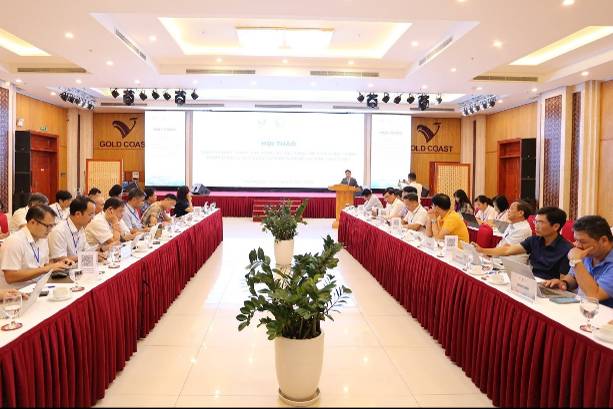On the morning of September 20, a technical consultation workshop for developing the project "Implementing the Strategic Action Program for the East Sea and the Gulf of Thailand" took place in Dong Hoi City, Quang Binh Province.
In his opening remarks, Dr. Nguyen Le Tuan, Director of the Institute of Marine, Island, and Environmental Sciences, emphasized that between 2002 and 2008, the Global Environment Facility (GEF) funded the regional project “Reversing Environmental Degradation Trends in the South China Sea and Gulf of Thailand,” known as the SCS Phase 1 Project, which was implemented by the United Nations Environment Programme (UNEP) across the region, including Viet Nam.
One of the critical outcomes of Phase 1 was the adoption of the Strategic Action Program for the East Sea by the governments of member countries in 2008. This program set priority objectives and activities, including integrated coastal zone management, marine pollution management, and addressing the overexploitation of aquatic resources. Viet Nam also drafted several strategic action programs for the conservation and sustainable development of mangrove forests, coral reefs, seagrass beds, and coastal wetlands.
 Overview of the workshop
Overview of the workshop
The Global Environment Facility (GEF) has approved the project "Implementing the Strategic Action Program for the East Sea and the Gulf of Thailand," to effectively carry out the Strategic Action Program adopted at the intergovernmental level in 2008 in six countries: Viet Nam, Cambodia, China, Thailand, Indonesia, and the Philippines. In Viet Nam, the Institute of Marine, Island, and Environmental Sciences is tasked with leading the development, submitting it to relevant authorities for approval, and implementing the project once approved.
The project's overall goal is to support countries in achieving the objectives of the approved Strategic Action Program (SAP) for the marine and coastal environment of the East Sea and the Gulf of Thailand by carrying out activities in the participating countries. The SAP, adopted in 2008 at the intergovernmental level, reflects a shared vision agreed upon by these nations to reverse environmental degradation in the East Sea.
Through participation in the project, Viet Nam will enhance its connections and expand its network with leading experts in the region, share information on the protection and development of marine ecosystems, including wetlands, mangroves, coral reefs, and seagrass beds, and assess the value of marine and coastal ecosystems to support sustainable management. Furthermore, Viet Nam will cooperate to identify the causes, status, and trends of marine pollution originating from land.
The project will consist of three main components: reducing environmental degradation through national and local management reforms to achieve the goals of the Strategic Action Program regarding the assessment, rehabilitation, and restoration of coastal environments in the East Sea and the Gulf of Thailand; knowledge-based actions to restore coastal environments and reduce land-based pollution to minimize environmental degradation; and facilitating regional and national cooperation and integration for the implementation of the Strategic Action Program in the East Sea and the Gulf of Thailand.